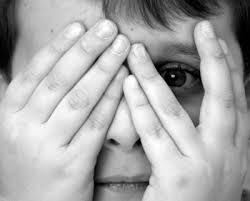记忆方法
将“afraid”与“a”看作是“一个”的意思,想象一个人(a person)在面对某种情况时感到“afraid”,即害怕。通过将“a”和“fraid”结合起来,形成“一个害怕的人”的形象,有助于记忆这个单词。
以上内容由AI生成, 仅供参考和借鉴
中文词源
afraid 害怕的
affray的形容词形式。
英语词源
- afraid (adj.)
- early 14c., originally past participle of verb afray "frighten," from Anglo-French afrayer, Old French esfreer "to worry, concern, trouble, disturb" (see affray (n.)). A rare case of an English adjective that never stands before a noun. Because it was used in A.V. Bible, it acquired independent standing and thrived while affray faded, and it chased off the once more common afeared. Sense in I'm afraid "I regret to say, I suspect" (without implication of fear) is first recorded 1590s.
Her blue affrayed eyes wide open shone [Keats, "The Eve of St. Agnes," 1820]
权威例句
- 1. She was afraid in a way that was quite new to her.
- 她感到从未有过的害怕。
- 2. "I'm afraid he's ill." — "I'm sorry to hear that."
- “恐怕他生病了。”——“真是遗憾。”
- 3. Why should a great community like a university be afraid of nihilism?
- 为什么像大学这样人才济济的社区要害怕虚无主义呢?
- 4. I was afraid you'd simply feel we were imposing on you.
- 我担心你会觉得我们是在勉强你。
- 5. Aren't you afraid of being seen as a righteous crusader?
- 你不怕被人看作是一个装腔作势的改革者?
